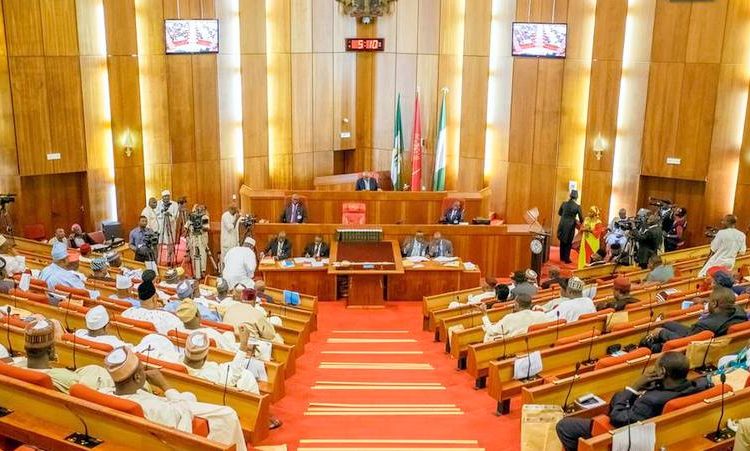Legislative moves to legalise power rotation in Nigeria across the six geo-political zones suffered a setback in the Senate during plenary yesterday.
The bill sponsored by Senator Patrick Abba Moro (PDP Benue South), was to pass second reading after his lead debate, but it was vehemently opposed by many of the Senators who contributed to the debate on it.
Senator Abba Moro had, in his lead debate on the piece of legislation entitled: “A bill for an Act to Provide for the Rotation of Power and for other related matters in 2022”, said there was the need for a law to legalise rotation of power across the various geographical divides in the country.
He posited that such a legislation, if passed into law, would not only promote the principles of equity, fairness and justice among the various geographical divides but also ensure the sense of belonging required for nationhood of a heterogeneous country like Nigeria.
“If there is a law on power rotation in Nigeria, it will help to ameliorate the squabble for power, particularly the Presidency across the various six geopolitical zones and also promote unity in the country,” he said.
But in their contributions, the senators, one after the other, kicked against the bill on the grounds of running against provisions of the 1999 Constitution.
First to reject the move, was Senator Bala Ibn Na’ Allah (APC, Kebbi South), who said the bill should have been presented as one seeking for amendment of relevant provisions of the Constitution and not just one seeking for legislation from the Senate or, by extension, the National Assembly.
“In as much as it is good for power to rotate across the various divides in the country, none of the provisions of the 1999 constitution gives room for that because it throws such privilege open to all Nigerians at all times.
“Without legislation or law on power rotation, a minority like former President Goodluck Jonathan became president of this country a few years back, just as we have a minority in the person of our revered president of the Senate, Ahmad Lawan, leading the 9th Senate.
“So, I don’t think there is any need for a specific law to be put in place for power rotation, and even if any move is to be made in that direction, it has to be through constitution amendment,” he said.
Deputy Senate President Ovie Omo-Agege (APC, Delta Central) , in his contribution , also kicked against the bill by making similar submissions like Bala Ibn Na’Allah, which made Senator Abba Moro to hurriedly withdraw the bill through order 42 of the Senate standing rules.
Meanwhile, the Senate has passed a bill into law amending the Court of Appeal Act, 2013, thereby increasing the number of Justices of the Court of Appeal from 90 to 110.
The development was sequel to the adoption of a report by the Senate Committee on Judiciary, Human Rights and Legal Matters, at plenary yesterday.
Earlier, while presenting the report, chairman of the Committee, Senator Opeyemi Bamidele (APC, Ekiti Central), said the Bill, sponsored by Senator Chukwuka Utazi (PDP, Enugu), sought to increase the number of Justices of the Court of Appeal from 90 to 110.
According to him, the legislative intent of the amendment to the principal Act was to ensure that the Appellate Court has the requisite manpower to deliver justice without delay.
He said the bill was designed to bring justice closer to litigants in line with the current realities and expedite the administration of justice.
“This is necessary in order to eliminate delay in the justice delivery systems, as it relates to the adjudicatory powers of the court
“This proposed amendment undoubtedly is targeted at decreasing the workload of the court and enhancing its effective performance,” Bamidele said.
According to him, stakeholders were unanimous in their support of the passage of the Bill into law, given its strategic relevance to the justice sector reform.
He said the amendment would ultimately stimulate quick dispensation of justice.
“The one silent improvement of this Bill is the aspect that seeks to integrate virtual court proceedings which have become an integral part of our court proceedings.
“This also is in line with the guideline given to courts by the Chief Justice of the Federation, as justice will no longer be delayed,” he added.
Upon adoption of the Committee report on the Bill, the Senate unanimously passed the bill into law.





